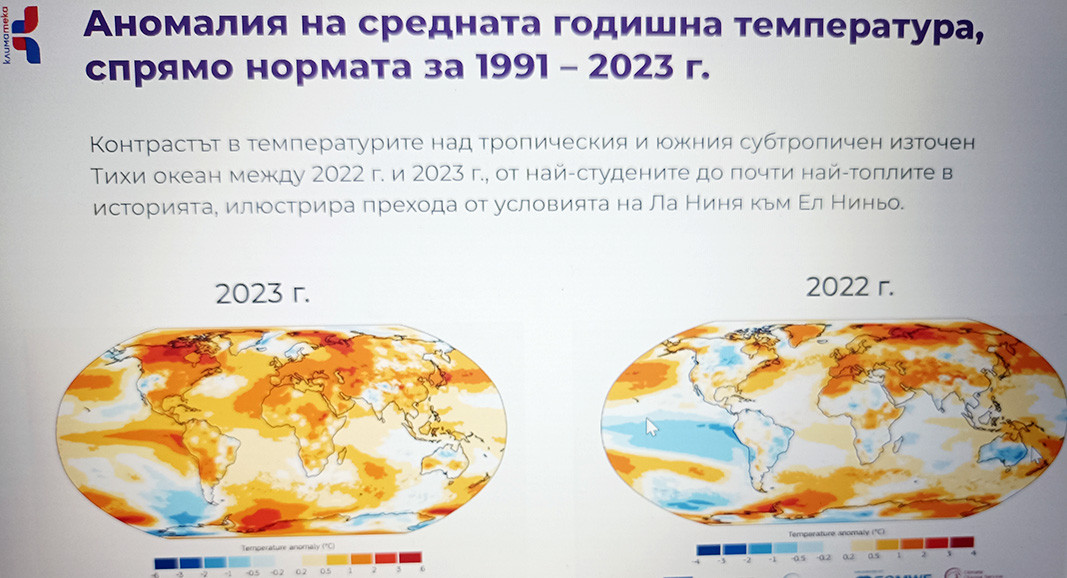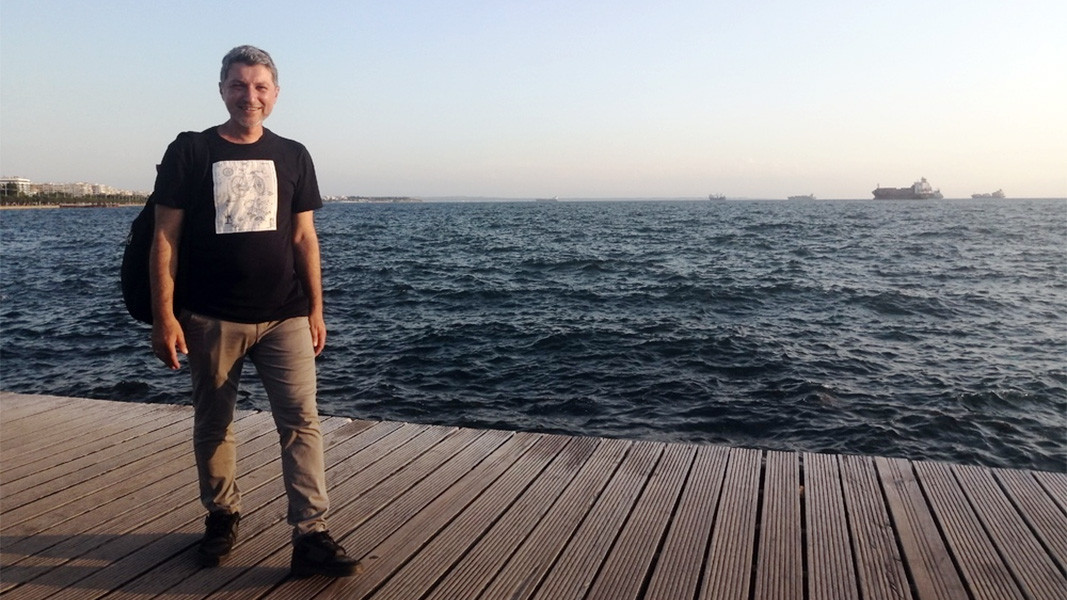In the past few years we have been seeing weather that is not typical of the respective season. 2023 has been no exception, and the vagaries of the weather made it the hottest year in the world since 1850, exceeding by 14.98° C. the 1850 norm, which is taken as fundamental, as it is from the world’s pre-industrial period – after that, humans begin to play a significant role in all natural processes.
In Bulgaria, the average annual temperature was 12.9° C., making it the hottest year since 1930, according to the National Institute of Meteorology and Hydrology. All season were warmer than usual, with the exception of spring when temperatures were below the norm for the country. Even though it is the first month of autumn, there were more days with summer temperatures in September than there were in the first month of summer – June. The rate at which global temperatures have been rising since the late 1970s is by about 0.2° C. per decade, indicates an analysis by Assist. Prof. Simeon Matev, PhD, from the Faculty of Geology and Geography of the St. Kliment Ohridski University, presented by Climateka press club. 
Last year, each of the months from July to December broke the heat record with regard to average monthly temperatures, and 2023 has gone down as the hottest year in 77 countries since meteorological records began – including in China, Brazil, South Korea, Mexico, Germany, the Netherlands, Switzerland, Ukraine and… Bulgaria.
In this country, records have been kept of air temperatures for almost a century, climatologist Simeon Matev says:
“In the past 30 years, the average annual temperature in Bulgaria has gone up by 0.8-1.0° C., the rise being steepest in the northern part of the country. Since 2011 we have had 12 years which have been above the norm, with temperatures climbing as 2020 neared.”
Simeon Matev says that the highest temperatures in 2023 were in the central portion of the Balkan foreland, the central parts of the Danubian Plain and many regions of Northeastern Bulgaria.
“One of the reasons for that is that we very often had a southerly wind in the country ushering in warmer air. The Southwestern parts of the country remained the least affected by it – the regions of Sandanski and Petrich, which are among the warmest parts of the country anyway.”
As regards precipitation – the wet months of November and December helped catch up with the norm on an annual basis. There have been a considerable number of wind storms during the year – in almost all months there has been information of material damage inflicted by strong winds in different regions of the country.
What made 2023 so warm?
“One of the most important reasons is the human factor with the increase in the concentration of greenhouse gases,” the expert says. “El Niño also had a significant effect, as has the solar cycle and the eruption of the volcano Hunga Tonga (in the Southwestern Pacific – editorial note), as well as the pollution of the seas and the oceans with fuel from the military, passenger and merchant fleet.”
The correct way to put it would probably be that no less than half of the global warming – and not just for last year, but all in all – is due to human activity, Simeon Matev explains and adds:
“In 2023, the concentration of carbon dioxide in the atmosphere had already reached 420 parts per million. Just imagine 1,00,000 particles, 420 of which are carbon dioxide. I know it may not sound much, but the role of greenhouse gas is to retain the heat released by the Earth. That is why each particle from this 1 million is crucial,” the climatologist says.
Translated and posted by Milena Daynova
Photos courtesy of Simeon Matev, BTA, climateka.bg
Residents and visitors to Sofia will have the opportunity to learn more about Bulgarian scientists working in Antarctica and their important role in the exploration of the continent. The exhibition "Antarctic People - Caring for the Earth" by BNR..
Looking and feeling your best doesn’t have to come at a high price — especially in Bulgaria. The country has become a rising star in beauty tourism, offering top-tier salon services at prices that won’t break the bank. Whether you’re a local or a..
In 1992, a child from Georgia packed her entire life into a small black canvas bag to escape the horror of the bombs… The war through her eyes and the most terrible memories that mark her entire life are described in the..
The group cycling tour along the tourist route of the Black Sea Route Epic Tour 2025 started today . According to the extreme sports website 360mag.bg, a..
On 26 and 27 April, Sevlievo in Central Bulgaria is hosting the festival “Seme Balgarsko ”. For its 11 th edition, the organizers have a colourful..

+359 2 9336 661
